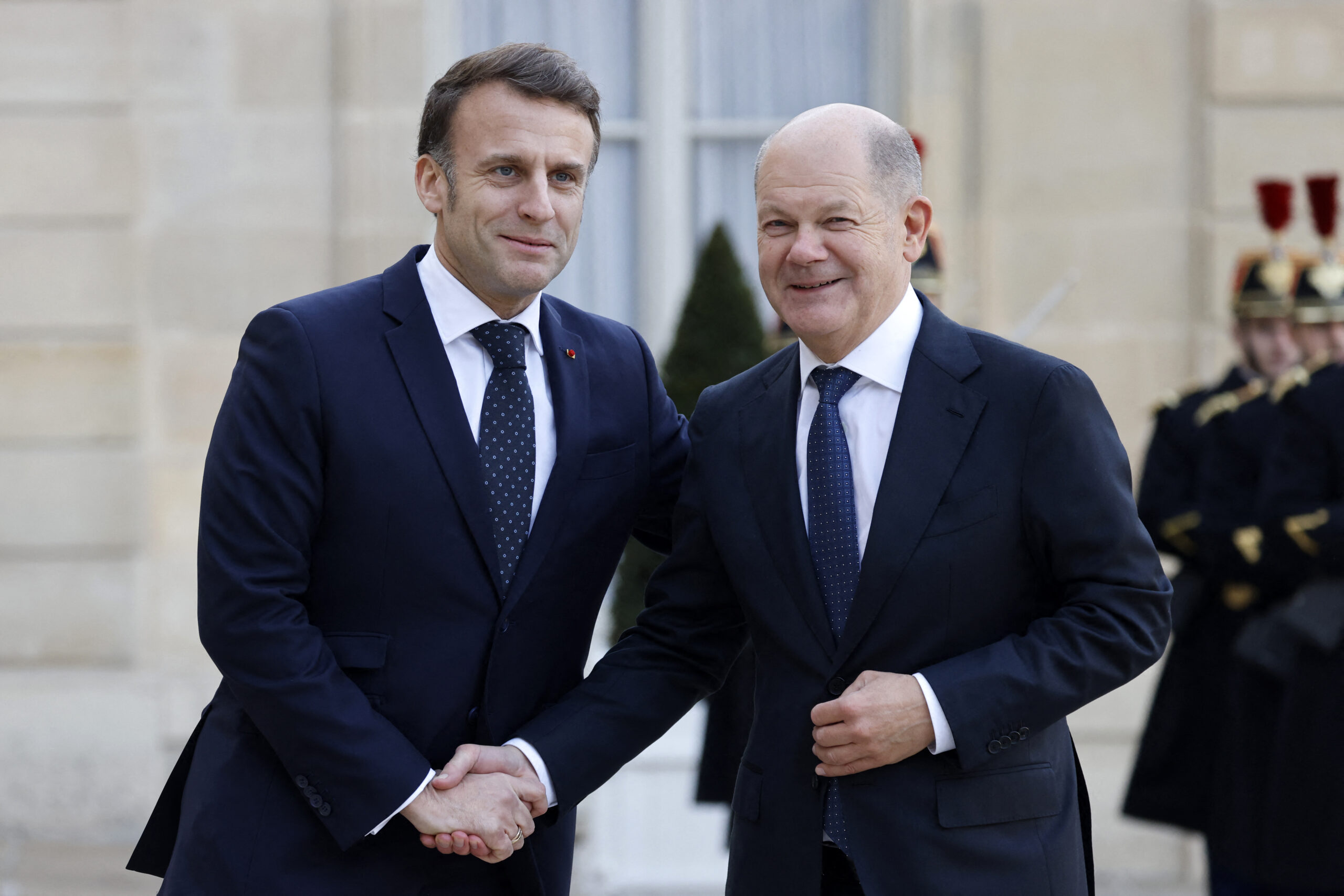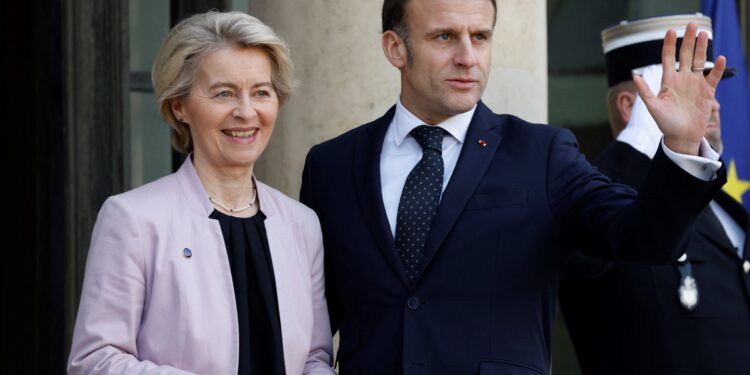Brussels – Almost nothing leaked out from the European summit at the Elysee Palace, convened by Emmanuel Macron to draw an immediate response to the announced negotiations between Trump and Putin. Though in a restricted format, there seem to be too many opinions, at least on the most crucial point: the security guarantees on the table for Ukraine. While British Prime Minister Keir Starmer said he was ready to deploy British soldiers for peacekeeping, German Chancellor Olaf Scholz branded the issue as “inappropriate and speculative” for now. And Polish Premier Donald Tusk made it clear in the morning that Warsaw would not send its troops to Ukraine.
On this premise, just ahead of the meeting in Riyadh between US Secretary of State Marco Rubio and Russian Foreign Minister Sergei Lavrov, Macron’s attempt to overcome the ballast of unanimity of the 27 member states risks failing. Just think that the heads of state and government of France, Germany, Britain, Italy, Poland, Spain, the Netherlands, and Denmark, along with the NATO secretary general and the heads of European institutions, met in Paris to signal strength. Antonio Costa, president of the European Council, aware of the criticism that has come for the exclusion of most member countries – criticism also leaked by Italian Prime Minister Giorgia Meloni – was quick to clarify that the summit is “the beginning of a process that will continue with the involvement of all partners committed to peace and security in Europe.”
The EU is guilty of being late in the face of the long-anticipated acceleration by Donald Trump. It exposes itself to those – like Viktor Orbán’s Hungary – who, through spokesman Balázs Orbán, speak of a “losers’ club” in Paris and mock “pro-war European leaders” who “should respond to the US-initiated peace talks, set to begin despite EU opposition.” Kyiv itself is calling for breaking the deadlock: according to Bloomberg reports, the deputy head of Volodymyr Zelensky’s office said that the EU should quickly appoint a representative to avoid not being part of the peace talks. “The decision should be made quickly,” he said, “hopefully right after the Paris meeting. We should act, not reflect.”
For now, perhaps the best news comes from the US envoy for Ukraine, Keith Kellogg, who, in an interview at NATO headquarters in Brussels, reportedly reassured Secretary-General Mark Rutte by stating that “no one will impose a pre-packaged agreement on the elected leader of a sovereign nation” and that “the ultimate decision on Ukraine’s future remains with Ukraine.” Kellogg will meet with Ursula von der Leyen tomorrow and will be in Kyiv on Thursday. The European Commission president, in a message on X, called for leaders convened for “crucial talks” in Paris to adopt “a mindset of urgency.”

However, the statements of the first leader to leave the Elysée Palace, German Chancellor Scholz, reflect the image of a Europe that is still far from finding a solution, standing firm on the sacrosanct “non-negotiable” principles already widely shared in three years of conflict. “No dictate can be imposed on Ukraine,” Scholz said, adding that the eight states present are “united in the idea that Ukraine should have an army” and that there should be no question regarding the path to EU membership. Asked about the possibility of deploying a European peace-keeping force in Ukraine in the face of US disengagement, Scholz said he was “a little annoyed by this debate” because it was “inappropriate” and “totally premature at this stage.”
Tusk, on the other hand, left no room for interpretation either, dumping the hot potato on the allies: “We have no intention of sending Polish soldiers into the territory of Ukraine. However, we will support, including in terms of logistics and political support, those countries that are willing to provide such physical guarantees for Ukraine in the future,” he made clear before departing for Paris. The Polish premier, a fervent Atlanticist, also ruled out the possibility of “building an alternative to NATO,” pointing out that “there is no doubt that the real guarantees of security and border stability for Ukraine must come from the cooperation of all of Europe, the United States and within the framework of NATO.”
According to a Washington Post report, a skeleton of a European plan to submit to the White House reportedly exists. It would be a sort of “deterrence force,” between 25 and 30 thousand troops, which would not be deployed along the line of conflict but “ready to intervene” if Moscow reopened hostilities. However, the European contingents would have to be supported by US intelligence, surveillance, and reconnaissance capabilities – and with eventual air cover.
English version by the Translation Service of Withub










